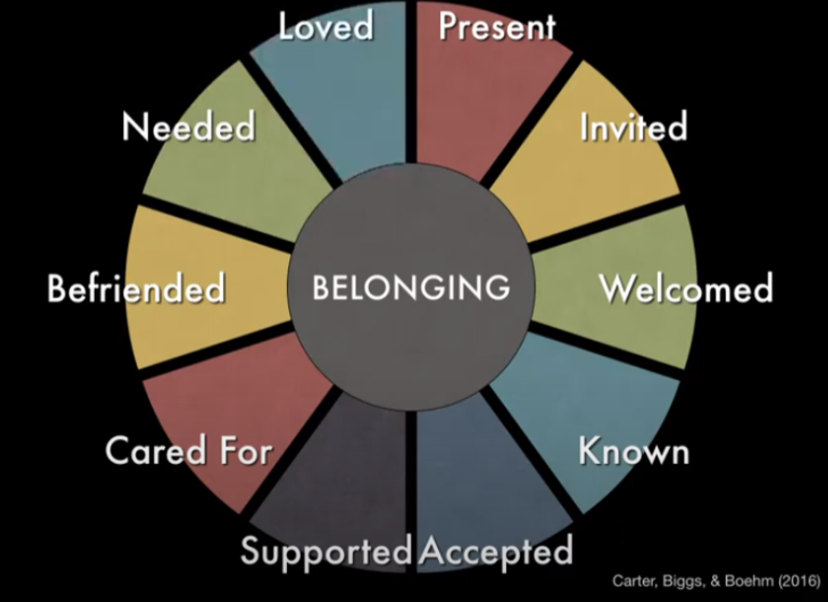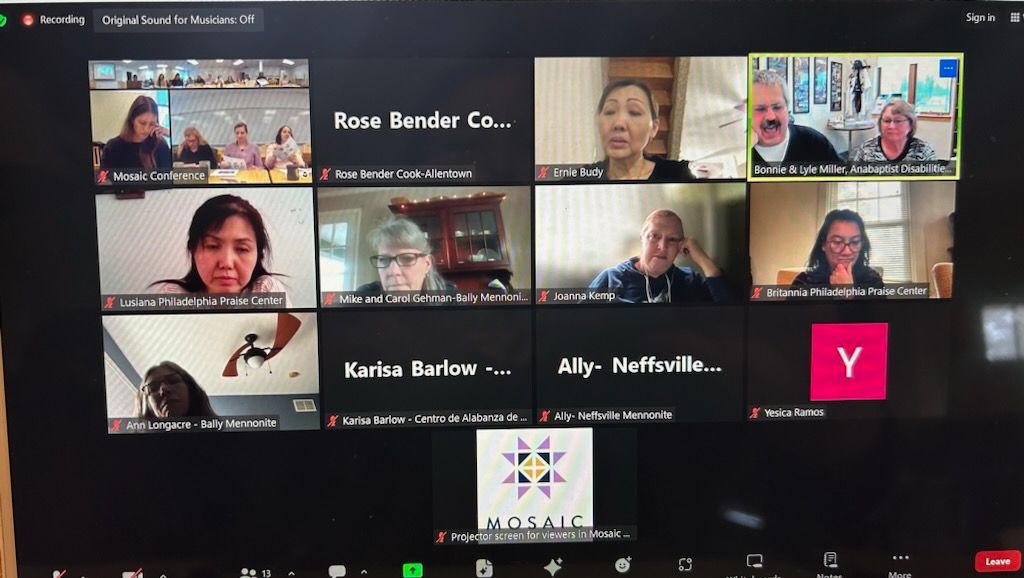by Jennifer Svetlik
“Everyone wants to know that they belong, that they are important, and missed when they are not there, especially at church,” shared Bonnie Miller, field associate for the Anabaptist Disabilities Network (ADN).
On Saturday, January 27, nearly 30 pastors, elders, directors of children’s and youth ministry, and other leaders from 13 congregations gathered at the Mosaic Office and on Zoom for a workshop titled “Nurturing Accessible Family Ministry.”

The formation opportunity was facilitated by Bonnie and her husband Lyle Miller, ADN board member. Bonnie and Lyle introduced themselves by sharing about how their lives as parents have been touched by disability.
They opened the time by dispelling several myths, including “there are not people with disabilities in our congregation,” citing statistics that one in seven children, to around half of those over age 65, have a disability. “Every church is planted in a community with people who are impacted by chronic illness, mental health challenges, and physical and intellectual disabilities.”

The workshop focused on the concept of fostering belonging, as a sense of invitation that goes beyond inclusion within congregations. Drawing heavily on the work of Dr. Erik Carter, participants were invited to reflect on 10 aspects of “broad belonging” and how those are or can be more deeply cultivated in their congregations.

“It’s about putting people in places where they will develop relationships with each other, more than developing new programs,” Bonnie shared.
Noting that churches are exempt from the Americans with Disabilities Act, “it is important that this conversation happen in churches. How do we work toward inclusion so that people of all abilities are integrated into all our [formation opportunities]?” reflected Bonnie. Later Lyle noted that even if churches have ramps to make their spaces wheelchair accessible, often the one place that is not accessible is the platform upfront, limiting those with mobility issues from leading worship.
Some of the concepts that were shared were around universal design, which is the creation of an environment so that it can be accessed by people of all bodies and abilities, and its applications in learning. Also included were resources on how to advocate for families impacted by disability, accessibility audits for a church building, and best practices for relating to neurodivergent youth or children (including those with diagnoses such as autism or ADHD). “Much of fostering belonging are ordinary actions of hospitality; disability expertise isn’t needed. Training can be helpful, but genuine invitation and connection are most important,” Lyle encouraged.
“One takeaway for me is to keep asking questions of families impacted by disabilities, to learn what would help them to integrate well into church life, and to encourage awareness from our church leaders,” shared Carol Gehman, youth leader and preschool teacher at Bally (PA) Mennonite. “It has made me think more intentionally about the ways in which people with disabilities can share their gifts with the congregation more visibly.”
“I learned more about how the church can be more accessible to people with disabilities and how we can be a more welcoming community,” reflected Britannia Worotikan, a children’s ministry teacher at Philadelphia Praise Center.
The idea for the workshop was born out of the connections that several Mosaic congregations had made around their work toward making their formation more accessible. They desired to gather with leaders within other congregations across the Conference to receive training and share resources and ideas.
Thanks to a grant from Plains Mennonite, each participating congregation received a bin of sensory items and resources, so they could begin to implement some ideas right away.
View the training’s recording, slides, and handouts:
The opinions expressed in articles posted on Mosaic’s website are those of the author and may not reflect the official policy of Mosaic Conference. Mosaic is a large conference, crossing ethnicities, geographies, generations, theologies, and politics. Each person can only speak for themselves; no one can represent “the conference.” May God give us the grace to hear what the Spirit is speaking to us through people with whom we disagree and the humility and courage to love one another even when those disagreements can’t be bridged.
